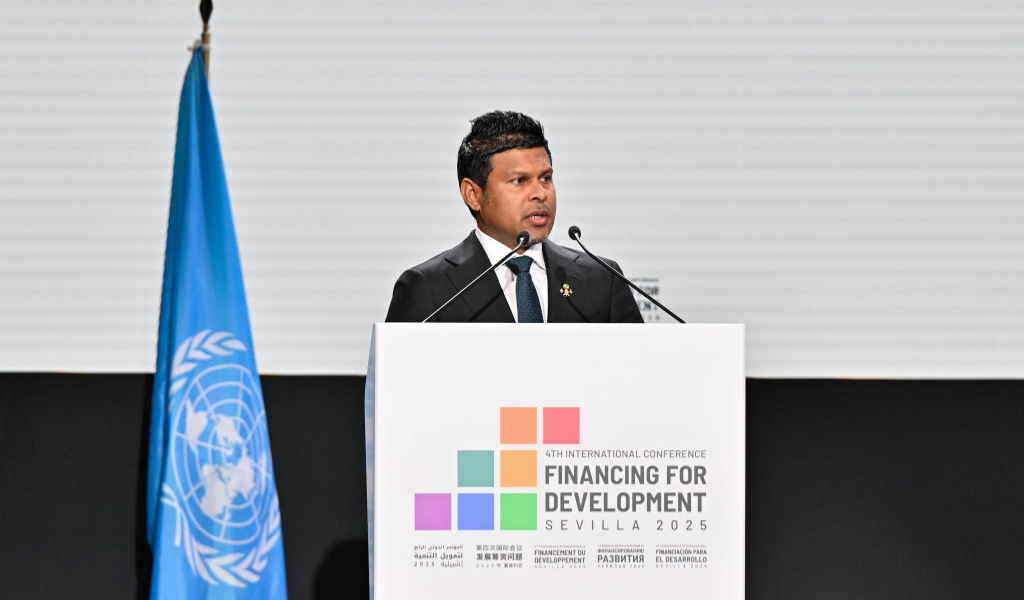
Maldives VP Pushes for Fair Finance and Debt Justice at Global Forum
Vice President Hussain Mohamed Latheef has called for urgent reform of the global financial system and meaningful debt relief for Small Island Developing States (SIDS), during his address at the Fourth International Conference on Financing for Development (FfD4) in Seville, Spain.
Speaking at the plenary session, Vice President Latheef highlighted how geopolitical tensions and global conflicts are increasing uncertainty, disrupting supply chains, and raising risks for countries like the Maldives. He underlined the need for purposeful development supported by strategic planning and long-term investment.
Despite these challenges, he pointed to major development initiatives undertaken by the Maldivian government—such as launching international bunkering services and setting up the Development Bank of Maldives—as key steps toward economic growth. He also noted efforts to modernise the financial system through the Maldives International Financial Services Authority and the Maldives International Finance Centre.
The Vice President shared progress in boosting value-added fisheries exports through expanded trade partnerships and highlighted support for micro, small, and medium-sized enterprises, especially those led by women and youth.
Among key infrastructure projects, he mentioned the upcoming opening of the new Velana International Airport terminal in July, which will triple its passenger capacity to 7 million—a milestone towards the Maldives' goal of becoming a developed country by 2040.
Latheef stressed that SIDS often remain ineligible for concessional finance, forcing them into commercial borrowing even for essential development. He reaffirmed that debt remains the greatest barrier to progress for these nations.
Calling for the commitments made in Seville to be turned into real action, the Vice President emphasised the need for international cooperation, debt relief, and inclusive reforms that allow all countries to achieve the 2030 Agenda on their own terms.
The FfD4 conference runs from June 30 to July 3, 2025, bringing together leaders from governments, international organisations, trade and financial institutions, civil society, and the private sector to shape the future of global financing.